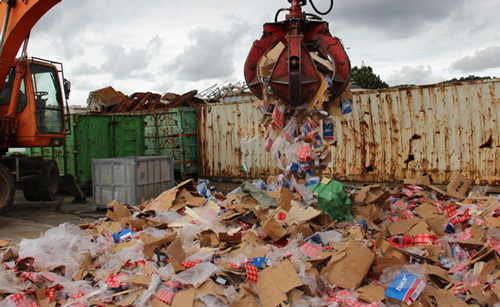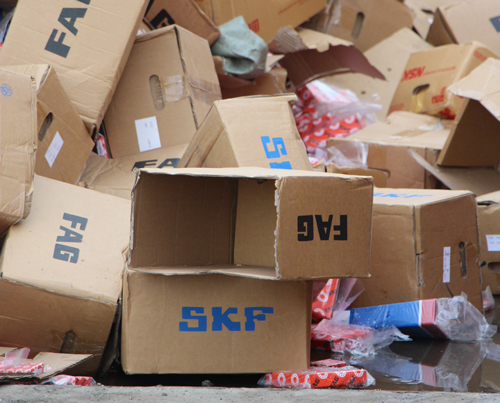How can you tell if your bearings are counterfeit?

The world revolves on bearings. They're found in almost everything: cars, trains, planes, medical equipment, industrial machinery, even our washing machines. The demand for bearings is high, so it's easy to see why the bearing industry is one of the hardest hit by product piracy.
- Interpol“We lose 10 people every day due to motor accidents because of vehicles that fail to break due to fakes bearings.”
If we think of counterfeit products, we often think high quantities at low prices, but this isn't always the case. Product pirates are becoming wise to the prices premium labels can fetch. This means when copies are either identical or original refurbished bearings, making it easy to see how these products end up in the supply chain. Although counterfeit bearings may look identical to manufacturer product, in actuality, they couldn't be further from it. As we all know, lubrication and advanced technologies play a major part in the safe running of a bearing and these are the aspects compromised in fake bearing production.
It is still important to remember that prices too good to be true can be just that; good deals and unbelievably low prices are a common indicator of counterfeit products. We all love a good deal, so even though these prices are tempting, in reality, the result of using these bearings can be catastrophic.
These fakes can fail within hours of fitting, putting machinery productivity and human lives at risk. This is demonstrated by Interpol who have stated that "we lose 10 people every day due to motor accidents because of vehicles that fail to break due to fakes bearings."
Manufacturers such as SKF, Schaeffler and NSK are taking matters into their own hands by joining forces with law enforcement authorities. Commenting on the issue, SKF stated that "We take a zero-tolerance approach to the counterfeit problem. Every year, our brand protection team participates in more than 100 raids against sellers and manufacturers of counterfeit products."
 As a result, SKF has seized 15 tonnes worth of counterfeit products in just one raid. This was their biggest seize and had been set to be sold to customers in the marine industry supply chain. More recently, NSK have been working with the Chinese authorities leading to the seizure and destruction of 23,000 boxes and cartons. This investigation also lead to another seizure of 90,000 boxes from the same offender.
As a result, SKF has seized 15 tonnes worth of counterfeit products in just one raid. This was their biggest seize and had been set to be sold to customers in the marine industry supply chain. More recently, NSK have been working with the Chinese authorities leading to the seizure and destruction of 23,000 boxes and cartons. This investigation also lead to another seizure of 90,000 boxes from the same offender.
It’s not only in China this is happening either. Closer to home, West Yorkshire Trading Standard - assisted by SKF - seized around 1.5 tonnes of counterfeit product in 2017.
It may be near impossible to spot counterfeit's, but there are measures you can take. Using apps such as NSK Verify (for precision bearings), SKF Authenticate and Schaeffler OriginCheck App can help you identify these pirate products. The World Bearing Association (WBA) have also released their WBA Bearing Authentication app.
The app covers a range of premium brands such as Koyo, Nachi, NTN, NSK, Schaeffler, SKF and Timken.
If you’re still unsure, you can follow the WBA guidelines for identifying counterfeit bearings:
· Don’t try to identify fake bearings on your own
· Contact the premium brand manufacturer instead
· Take photos and gather information of suspected counterfeit products
· Don’t contact those who might be involved in illegal counterfeiting activities
· The best way to safeguard authenticity is to buy from trusted and authorised sources.
Always remember to buy from authorised distributors and other trusted routes. This is always the best way to ensure you’re not affected by the dangers of counterfeit bearings.
